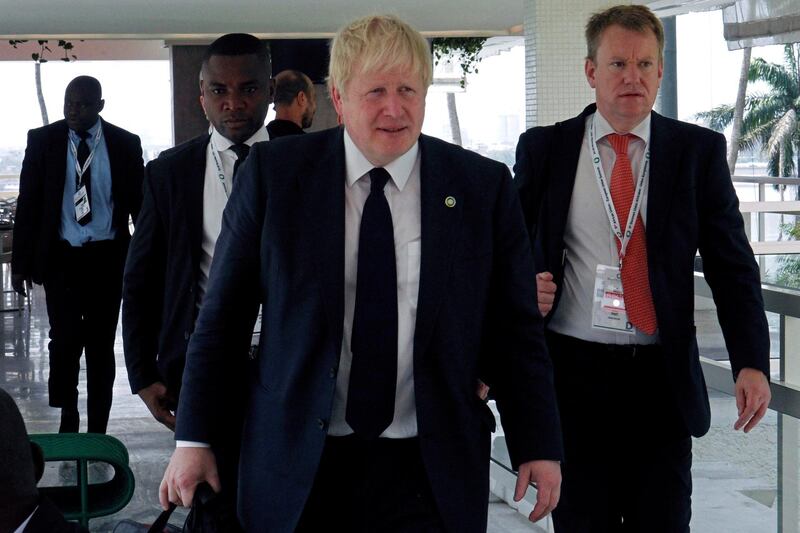Foreign secretary Boris Johnson suggested on Wednesday that the widely reported €50 billion divorce bill between Britain and the European Union was indeed in the stages of being agreed, and that there would now be an opportunity to for the two sides to move ahead on to talks about the future trade arrangements between them.
“We’re hoping very much that the offer the prime minister is able to make at that council will be one that guarantees sufficient progress,” Mr Johnson told reporters in Abidjan, Côte d'Ivoire, where he was attending an EU-African Union summit. “Now’s the time to get the ship off the rocks.”
It was widely covered in British newpapers on Thursday that agreement had been reached on framework through which the UK would settle future payments to the union that the country was liable for.
While some reports suggested the figure could end up as high as €100 billion, the consensus was they would total about €45-55bn and would be paid over a period of time that could stretch into decades – they key term in discussions has been that the UK would pay their debts ‘when they [fell] due’.
Talking to Sky News earlier on Wednesday, his cabinet colleague Chris Grayling broadly accepted that an agreement was in the making, but refused to be drawn on ‘speculation’ about what the figure would include.
_______________
Read more:
[ UK and EU agree Brexit divorce bill, reports ]
_______________
“We’ve said that we'll meet our obligations, we’ve said that that needs to be part of a broader agreement – that nothing is agreed until everything is agreed,” he said.
“But we’ve made good progress in the negotiations on this and other aspects of the package that we're discussing and we hope that we can move on to trade talks at the European Council.”
However the ‘deal’ was described by former UKIP leader Nigel Farage as a “sellout”.
He said: “I have always argued that no deal is better than a bad deal. Make no mistake about it, €55bn to leave the EU is a very, very bad deal.”
“For a sum of this magnitude to be agreed in return for nothing more than a promise of a decent settlement on trade represents a complete and total sellout,” he wrote in The Daily Telegraph.
Others have noted the marked change in position of Mr Johnson, who as recently as July told the House of Commons that the EU could “go whistle” if they attempted to enforce an “extortionate” Brexit settlement on the UK.
Meanwhile, officials In Brussels were describing themselves as being “cautiously optimistic” about a deal, but that they “were waiting to see something in writing from the UK side.” The EU’s chief Breixt negotiator Michel Barnier said “we still have work to do, the negotiation is not over on this subject” but was hopeful an agreement could be struck next week.
And Ireland’s EU commissioner was also positive about developments: “I would welcome very much the fact that the United Kingdom has brought forward proposals that go very close towards meeting the requirements of the EU 27 member states,” said agriculture commissioner Phil Hogan.






